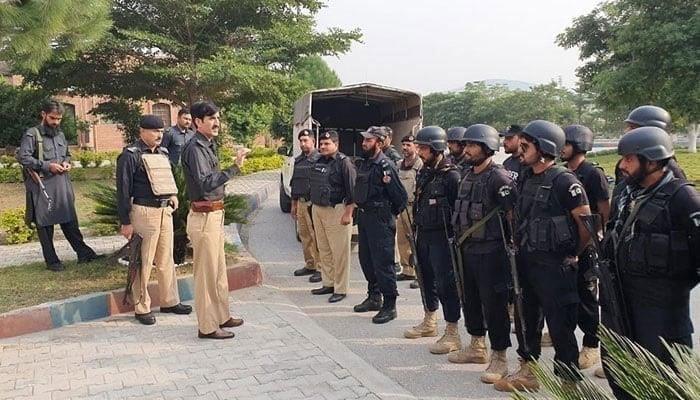
Gilgit-Baltistan Police Protests Grow As Officers Suspended
The protests began in mid-August when hundreds of police officers, including women constables, staged an overnight sit-in outside the Chief Minister's House in Gilgit. Their primary demand was the implementation of allowances already approved in the regional budget but delayed in practice. Officers sought parity with Islamabad Police, a monthly ration allowance of PKR 6,000 instead of the PKR 500 increase offered, and inclusion in the 30 percent Disparity Reduction Allowance already granted to other government employees.
On August 11, authorities in Gilgit suspended 26 officers, citing“grave misconduct” and“violation of government servant conduct.” The following day, nine more personnel were suspended in Hunza. In total, 35 officers faced suspension and their salaries were withheld. Later, police authorities claimed through social media that as many as 63 personnel had been dismissed from service for“breach of discipline,” a move that, if confirmed, would be one of the largest dismissals in the region's recent history. Officials defended the measures as necessary to maintain discipline, while protesters argue their actions were within their constitutional right to peaceful demonstration.
The August sit-in followed an earlier protest on July 28, which was called off after government assurances that concerns would be addressed within 14 days. Protesters say that the administration failed to meet its commitments, leading to renewed demonstrations. Police personnel have demanded improvements in housing allowances, healthcare facilities comparable to military standards, structured career progression, and adequate compensation for injured officers and families of fallen personnel. The delay in implementing even basic budget-approved allowances, they argue, reflects long-standing neglect of police welfare.
The unrest in Gilgit-Baltistan has drawn comparisons to protests in Pakistan-administered Kashmir in July, where tens of thousands of police officers launched a“pen-down strike” to press a 10-point charter of demands. These included updated calculations of allowances, access to military hospital facilities, and the release of salary increases sanctioned since 2008 but not implemented. Reports suggest that in Gilgit-Baltistan, some officers have left sensitive security posts, including those guarding the Diamer-Basha dam, to join the demonstrations. The site is considered strategically vital as part of the China-Pakistan Economic Corridor.
Local media reports indicate that senior police officers have expressed sympathy for the rank-and-file, suggesting that discontent extends through multiple levels of the force. Traders, lawyers, and sections of civil society have also joined protests in solidarity, intensifying pressure on the administration to find a resolution. Observers warn that the deteriorating relationship between the government and its police force could undermine security in a region that borders China and is central to Pakistan's strategic projects.
The Gilgit-Baltistan government now faces calls to engage with protesters and address their grievances through meaningful dialogue. Analysts suggest that continued suspensions and dismissals may deepen mistrust and exacerbate instability at a time when the region's role in national security and international infrastructure projects is expanding. The outcome of these protests may set an important precedent for how police welfare and dissent are handled not only in Gilgit-Baltistan but across Pakistan's administrative territories.
ShareFacebook Twitter WhatsApp Email Print Telegram
Legal Disclaimer:
MENAFN provides the
information “as is” without warranty of any kind. We do not accept
any responsibility or liability for the accuracy, content, images,
videos, licenses, completeness, legality, or reliability of the information
contained in this article. If you have any complaints or copyright
issues related to this article, kindly contact the provider above.


















Comments
No comment